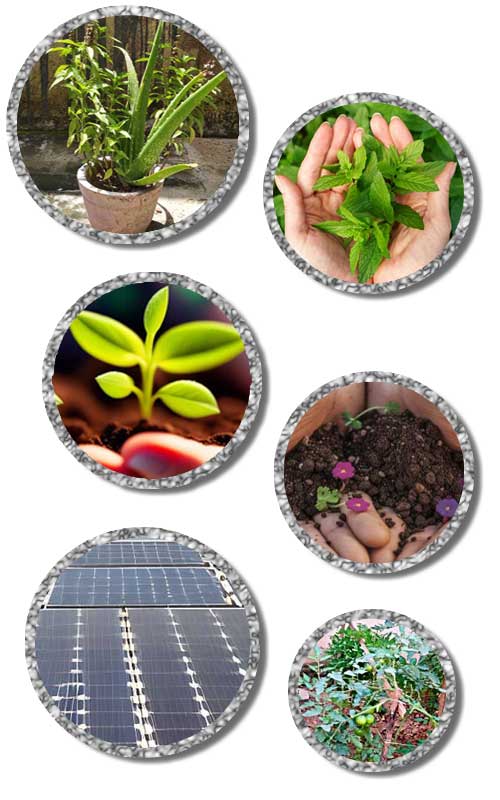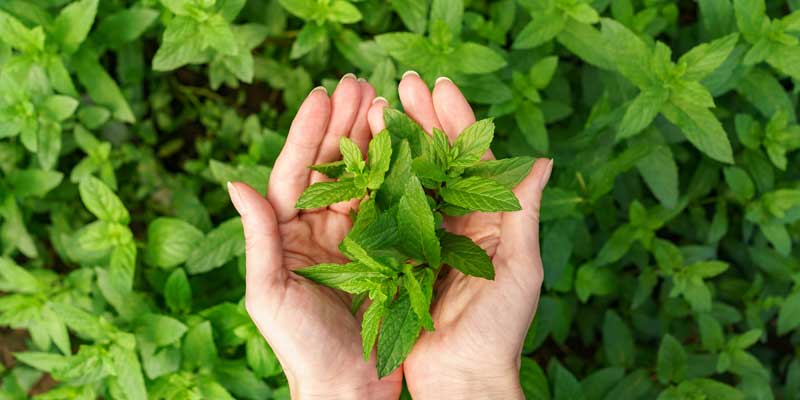Introduction:
In today’s fast-paced world, the importance of holistic well-being is undeniable. One of the most rewarding ways to promote a healthy lifestyle is by cultivating herbal plants at home. These natural wonders not only add a touch of green to your living space but also offer a myriad of health benefits. Whether you have a sprawling garden or just a windowsill, here are seven herbal plants that you can effortlessly grow at home.
Lavender (Lavandula spp.)
Lavender’s delightful fragrance and charming purple blooms make it a favorite among gardeners. Beyond its ornamental value, lavender is known for its calming properties. The scent of lavender has been shown to reduce stress, and anxiety, and improve sleep quality. You can use dried lavender flowers to make soothing teas or sachets to keep your living space fragrant.
Basil (Ocimum basilicum)
Basil is a staple herb in many cuisines around the world. Its distinctive aroma and flavorful leaves make it a fantastic addition to salads, pasta dishes, and sauces. Basil is also rich in antioxidants and has anti-inflammatory properties. You can grow different varieties of basil, such as sweet basil, Thai basil, or lemon basil, to add a diverse range of flavors to your culinary creations.
Mint (Mentha spp.)
Mint is a versatile herb that can be grown in a variety of settings. Its refreshing aroma and invigorating flavor are perfect for teas, cocktails, or culinary dishes. Mint is also known for its digestive benefits and can help alleviate indigestion and nausea. Be cautious, though, as mint can spread rapidly, so it’s advisable to grow it in pots to prevent it from taking over your garden.
Rosemary (Rosmarinus officinalis)
Rosemary is an aromatic evergreen herb that adds a delightful aroma to your home. Its needle-like leaves can be used to enhance the flavor of roasted vegetables and soups. Rosemary is also believed to improve memory and concentration, making it an excellent herb to have around your study or workspace.
Chamomile (Matricaria chamomilla)
Chamomile is renowned for its calming and soothing properties. Its daisy-like flowers can be used to make a calming herbal tea that aids in relaxation and sleep. Chamomile also possesses anti-inflammatory and antioxidant properties, which can promote overall well-being.
Lemon Balm (Melissa officinalis)
Lemon balm is a member of the mint family and boasts a fresh lemony aroma. It has been traditionally used to reduce stress, and anxiety, and promote relaxation. This herb can be brewed into a tea or infused into oil for topical use. Lemon balm is a great addition to your garden, attracting pollinators like bees and butterflies.
Thyme (Thymus spp.)
Thyme is a versatile herb with a strong flavor that complements a variety of dishes. It contains compounds with potential antibacterial and antifungal properties. Thyme is also a rich source of vitamins and minerals. Incorporate it into your cooking or make a thyme-infused oil for culinary and medicinal uses.
Conclusion
Growing herbal plants at home is a rewarding endeavor that not only adds beauty to your surroundings but also contributes to your overall well-being. Whether you have a green thumb or are just starting out, these seven herbal plants are easy to cultivate and offer an array of health benefits. By incorporating these natural wonders into your daily routine, you can create a harmonious balance between nature and wellness right in the comfort of your own home.








